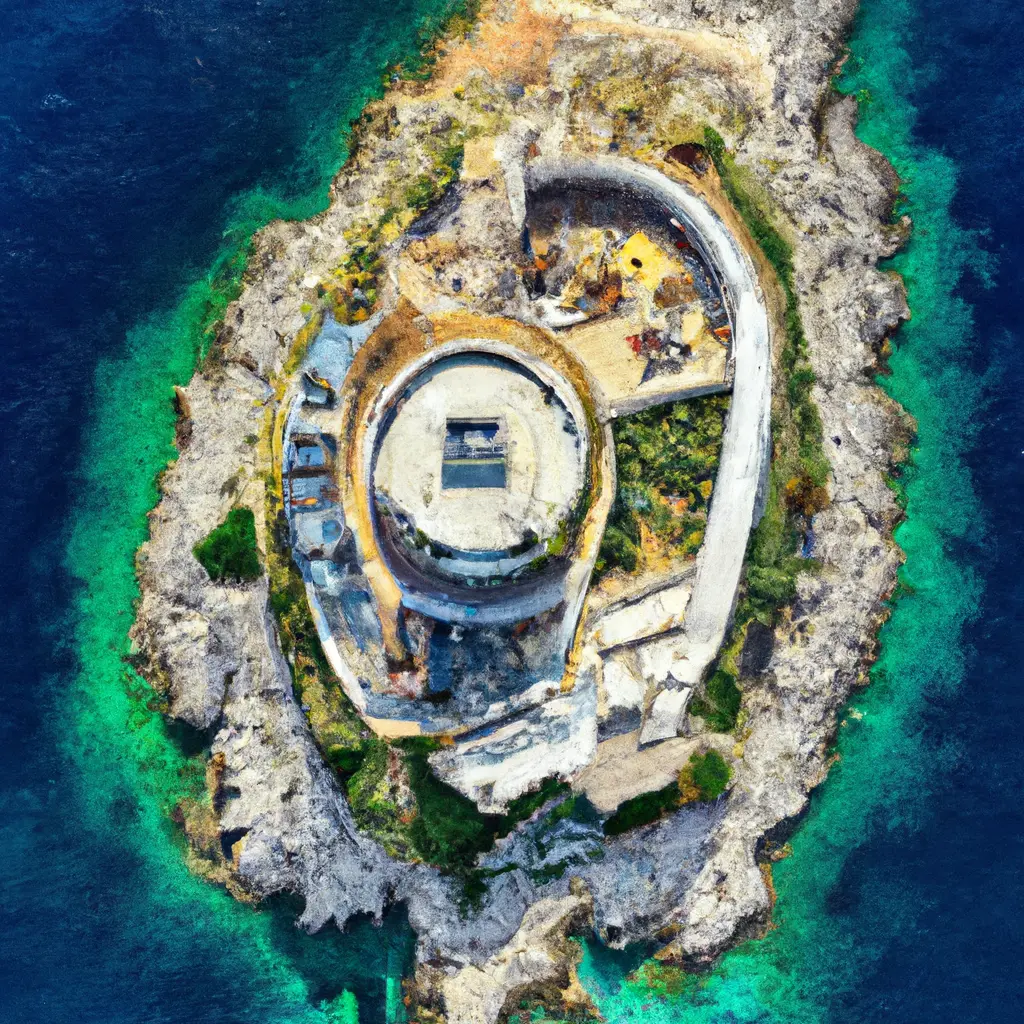Beauty of the Balkans: Billions are spent on glamorous marinas and luxurious hotels to turn a tiny...

When Montenegro gained independence from Serbia in2006, its prime minister declared, "Montenegro will become one of the world's most elite tourist destinations... Better than St. Tropez." It was an ambitious statement, but almost two decades later this small country, squeezed between Albania, Bosnia and Herzegovina, Kosovo, Serbia, and Croatia, is indeed on the path to success.
Now the titans relax on giant superyachts off the coast, the result of billions spent on gleaming marinas and five-star hotels from some of the most exclusive chains in the world, which have sprung up along the beaches. Its latest discovery, Mamula, is a beautifully restored19th-century fortress standing on its own little island in the heart of one of the most beautiful areas of the Mediterranean Sea.
We're flying to Dubrovnik, Croatia, and then driving south for half an hour along a dusty road lined with majestic cypresses, until we reach the border, where the landscape suddenly changes. The Croatian mountains rise sharply to giant peaks, which suddenly drop down to the Adriatic, and small towns with tiled roofs cling to the edge of the ocean.
Harriet Syme is registering at the Hotel Mamula, one of the latest hotel openings in Montenegro.
The hotel, converted from a19th-century fortress, stands on its own island. Welcoming us to the Balkans, our muscular driver grins and says, "Welcome to the Balkans," as we join the queue of buzzing cars. Only one border guard checks passports for entry and exit from Montenegro. He checks three or four passports, scrolls through his phone, and crosses to the other side of the road to start again in another lane. We wait only20 minutes, but are told that in peak season the queue can take six hours.
Montenegro, a country not much bigger than Yorkshire, with a population of just620,000 people, is not part of the European Union - despite applying for membership in2008. This is mainly due to a deepening political crisis, which recently led to the overthrow of the Prime Minister after32 years in power.
A few minutes after crossing the border, we are dropped off at the entrance to Boko Kotor Bay, a UNESCO-listed fjord-like inlet, where we board a boat and race across the glistening Adriatic Sea, looking out over the scattered villages. The island of Mamula is fast approaching. The soft, cream-colored, curved lime walls of the fortress rise from the rocky cliffs and frothy sea, while seagulls circle above.
On arrival we are given a quick tour of the circular island, only 200 meters in diameter, before being taken to our room. It's huge, with exposed stone walls and an arched ceiling, and furnished in neutral wool and linen fabrics. Despite opening for the first time in April, the hotel is already busy with guests from all over the world staying in one of its 22 suites or ten rooms. An almost monastic seclusion reigns here.
A common phrase you hear in Montenegro is "polako", which means take things slowly and don't be nervous. This reflects the lazy, relaxed atmosphere. We spend most of our days by the pool, which is in the center of the fortress, or on the small beach where the waves caress the white rocks and catamarans pass by.
The island takes its name from General Lazar Mamula, who built the fortress between 1851 and 1856 as part of the Austro-Hungarian fortifications forming a defensive line at the entrance to the Bay of Boko Kotor. Its past is controversial.
14 May 2025
14 May 2025






I wasn't sure how I would feel if one of my relatives ended their days here - tourists sipping champagne in the same building where people suffered. But the island doesn't hide its history and we are encouraged to visit the museum and memorial gallery on site. Every September there is a Remembrance Day to mark the day the island was liberated from the Italians, and the families of those who lived here are invited to take part.
Mamula is exactly the type of exclusive property the government was hoping to attract the biggest buyers in the world. Another is One & Only Portonovi, on the other side of the bay. One day we are transported by retro boat to the One & Only's Tapasake Japanese restaurant, which overlooks the sea. Tennis player Novak Djokovic comes here every year, presumably crossing the border from his hometown in Serbia. Enjoying glasses of creamy chablis, we savor tuna sashimi, avocado mini tacos and tempura chicken as the sun sinks over the glistening Adriatic Sea.
Montenegro seems to have retained its quiet charm despite all this new money. One day we take Mamula's free boat across the bay to the town of Herceg Novi, passing houses painted the color of the lemons growing in their gardens. We are dropped off at the harbor of the Old Town, where we watch cats sunbathe on the pavement and elderly fishermen pound beneath their rusty boats. Through a maze of churches, small bars and Venetian-style stone villas with bottle-green shutters, we climb steep steps leading to a square where we order two glasses of local wine in the shadow of a stately church. The price? Only £2.40 each. Montenegrins are physically huge (they recently surpassed the Dutch to become the tallest nation in the world) and now hope to become giants of tourism. Let's just hope the "polako" holds out.
Tags
Comment
Popular Posts
Popular Offers

Subscribe to the newsletter from Hatamatata.com!
Subscribe to the newsletter from Hatamatata.com!
I agree to the processing of personal data and confidentiality rules of Hatamatata








